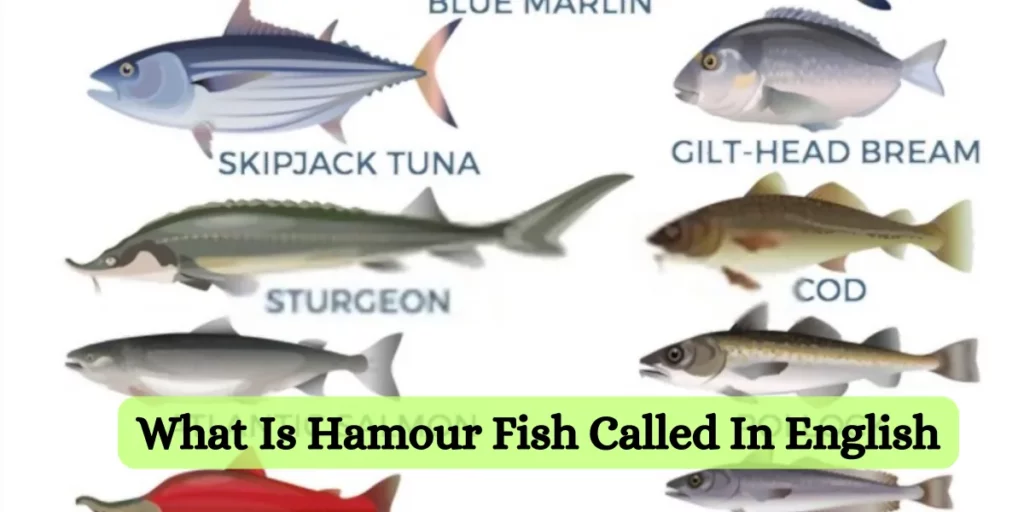What is Hamour Fish Called in English?
Hamour fish, a popular delicacy in many regions, often creates confusion due to its multiple names. In English, it is commonly known as “Grouper.” This large predatory fish belongs to the Epinephelinae subfamily and is widely renowned for its mild and delicious flavor, making it a prized catch among anglers and a favorite in seafood restaurants.
Hamour Fish – The Prized Delicacy
Hamour fish, or Grouper, holds a special place in various culinary traditions worldwide. Renowned for its delicate taste and meaty texture, it has become a sought-after delicacy in numerous coastal cuisines. With a distinctive blend of sweet and savory flavors, Hamour fish lends itself perfectly to various cooking methods, from grilling and baking to steaming and frying.
The Habitat of Hamour Fish
Hamour fish prefers warm waters and can be found in the Indian Ocean, particularly the Arabian Gulf and the Red Sea. It tends to inhabit rocky reefs, coral reefs, and shipwrecks, providing it with natural protection and hunting grounds. This species tends to be territorial, often remaining close to its home base, making it easier for local fishermen to target specific locations.
Fishing for Hamour – A Challenge and a Thrill
Due to its popularity in gastronomy, Hamour fish faces challenges related to overfishing. As a result, many regions have implemented strict regulations and fishing quotas to preserve its population. Catching Hamour fish requires skill and patience, as they are intelligent creatures and can put up a fierce fight when hooked.

Hamour Fish in Aquaculture
To meet the demand for this delectable fish, some regions have turned to aquaculture to cultivate Hamour. Rearing Hamour fish in controlled environments helps protect wild populations while providing a sustainable source of this sought-after seafood. Aquaculture facilities have adopted modern techniques to mimic the fish’s natural habitat and ensure their well-being and optimal growth.
The Life of Hamour Fish in the Wild
Hamour fish are solitary creatures, preferring to roam alone or in small groups. They are carnivorous predators, feeding on smaller fish, crustaceans, and cephalopods. Hamour Fish Live With their robust build and keen senses, Hamour fish are skilled hunters, allowing them to thrive in their natural environment.
Adapting to Various Environments
One remarkable aspect of Hamour fish is its adaptability. They can be found in a wide range of marine environments, from shallow coastal waters to deeper offshore regions. This adaptability has contributed to their survival and distribution across different geographical areas.
Hamour Fish in Popular Culture
Beyond its culinary significance, Hamour fish holds cultural importance in certain societies. In the Arabian Gulf, for instance, Hamour fish is a symbol of hospitality and is served during special occasions and gatherings. Additionally, the fish features in local folklore and stories, passed down through generations.
Hamour Fish – A Coastal Icon
Many coastal communities consider Hamour fish as an icon of their maritime heritage. The species’ presence in local waters sustains livelihoods and fosters a sense of connection to the sea. Artworks, poems, and songs often celebrate the beauty and significance of this majestic fish in these communities.
Conservation Efforts and Future Outlook
Recognizing the importance of preserving Hamour fish populations, various organizations, governments, and environmentalists have joined forces to promote responsible fishing practices and support sustainable aquaculture initiatives. Fish Called In English By raising awareness and implementing protective measures, there is hope for the continued existence of this beloved species for future generations to enjoy.
In conclusion, Hamour fish, also known as Grouper, is a prized delicacy known for its delightful taste and culinary versatility. While its popularity has led to challenges in wild populations, efforts to preserve and cultivate Hamour fish through sustainable practices offer hope for the species’ future. Whether celebrated in coastal traditions or admired for its ecological significance, Hamour fish continues to hold a special place in both the marine world and our hearts.








